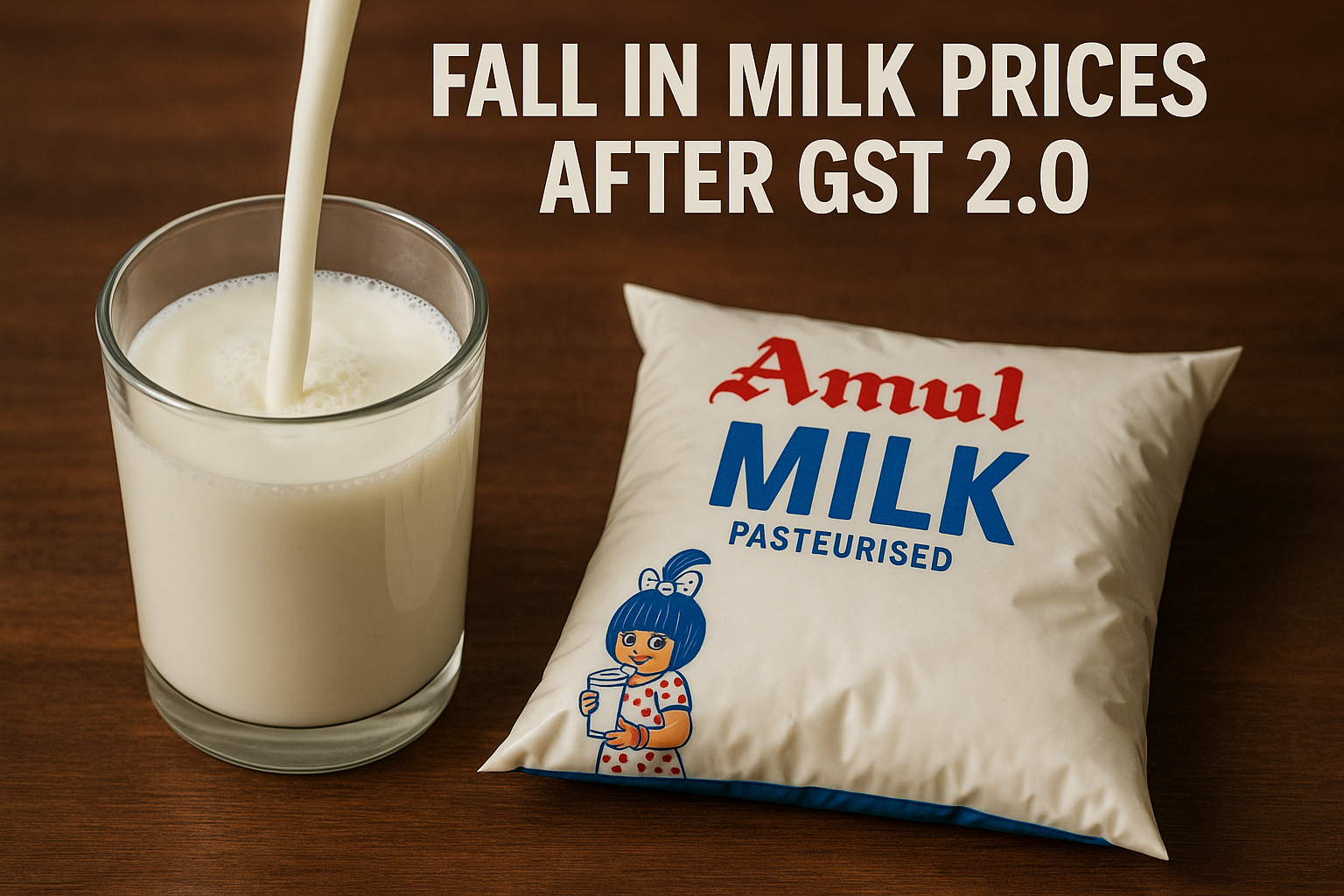Milk is one of the most essential items in every Indian home. Whether it’s for your morning chai ☕, children’s nutrition, or festive sweets, milk is part of our daily lives. Recently, milk prices have seen a welcome drop—all thanks to the new GST (Goods and Services Tax) rates.
But how exactly does GST affect the price of milk, and what does this mean for you as a consumer? Let’s break it down in simple terms.
🔽 Why Did Milk Prices Fall?
The government has revised GST rates under GST 2.0. With this change:
- Lower GST on dairy products has been introduced.
- Milk and milk-based products now fall under reduced tax slabs.
- The cost of production and distribution has gone down, directly benefiting households.
🏠 Benefits for Households
- Cheaper Daily Consumption – Families who buy milk regularly will notice savings in their monthly budget.
- Festive Cheer – With Navratri and Diwali around the corner, milk-based sweets like kheer, barfi, and rasgulla will be more affordable.
- Better Nutrition at Lower Cost – Parents can ensure children get their daily glass of milk without worrying about rising costs.
🚜 Impact on Farmers & Dairy Industry
- Farmers may see stable demand as consumers purchase more milk.
- Dairy cooperatives and private dairies can expand their reach.
- Overall, GST reform is expected to strengthen the dairy supply chain.
🌟 What This Means for You
The milk price drop is more than just a number—it’s real relief for families. With inflation affecting many household items, a reduction in the cost of such an essential product brings much-needed balance.
So, the next time you sip your chai or prepare sweets for the festive season, remember: GST 2.0 just made it a little sweeter.




